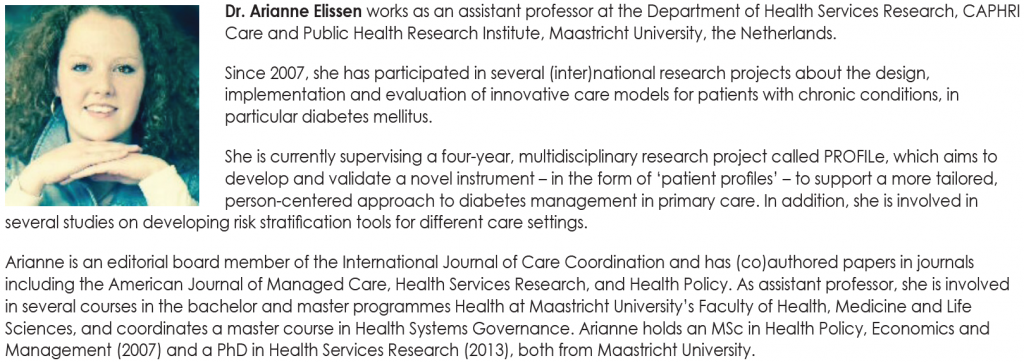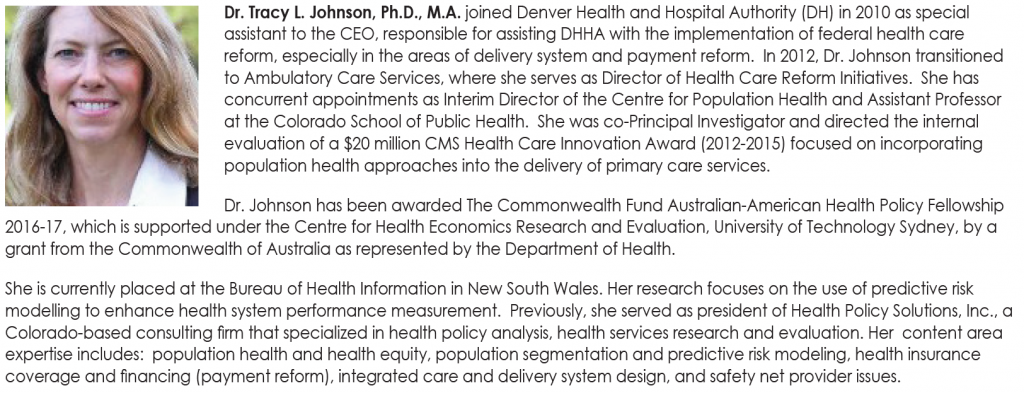 The Centre for Healthcare Knowledge & Innovation (The centre) invited clinicians, leaders and planners from primary care and local health districts to hear about recent developments in integrated care and risk stratification from experts in the field from Australia and abroad.
The Centre for Healthcare Knowledge & Innovation (The centre) invited clinicians, leaders and planners from primary care and local health districts to hear about recent developments in integrated care and risk stratification from experts in the field from Australia and abroad.
The March 24 event was well attended at the Ramada Hotel in Ballina with participants hearing about developments in risk stratification, particularly as it relates to person centred care; attendees were updated on the current state of risk stratification in Integrated Care in NSW; and shown how using predictive risk modelling to measure performance for high risk populations.
What is Risk Stratification?
Risk Stratification in NSW
Risk stratification approaches support a focus on organising care to meet the needs of targeted patients and their carers, rather than organising services around provider structures. Early identification and selection of people at risk of poorer patient health outcomes will enable the provision of appropriate integrated care interventions and mitigation strategies.
Integrated care delivery benefits anyone with healthcare needs; however, it is particularly important for people with complex and chronic conditions, helping them to better manage and maintain their own health and independence, and stay out of hospital for as long as possible.
Risk stratification has an important role in ensuring that patients who can received appropriate care within the community setting receive their care there, leading to a reduction in avoidable hospitalisations and the frequency of unnecessary hospital admission and emergency department attendances.
© Copyright - Agency for Clinical Innovation 2017



